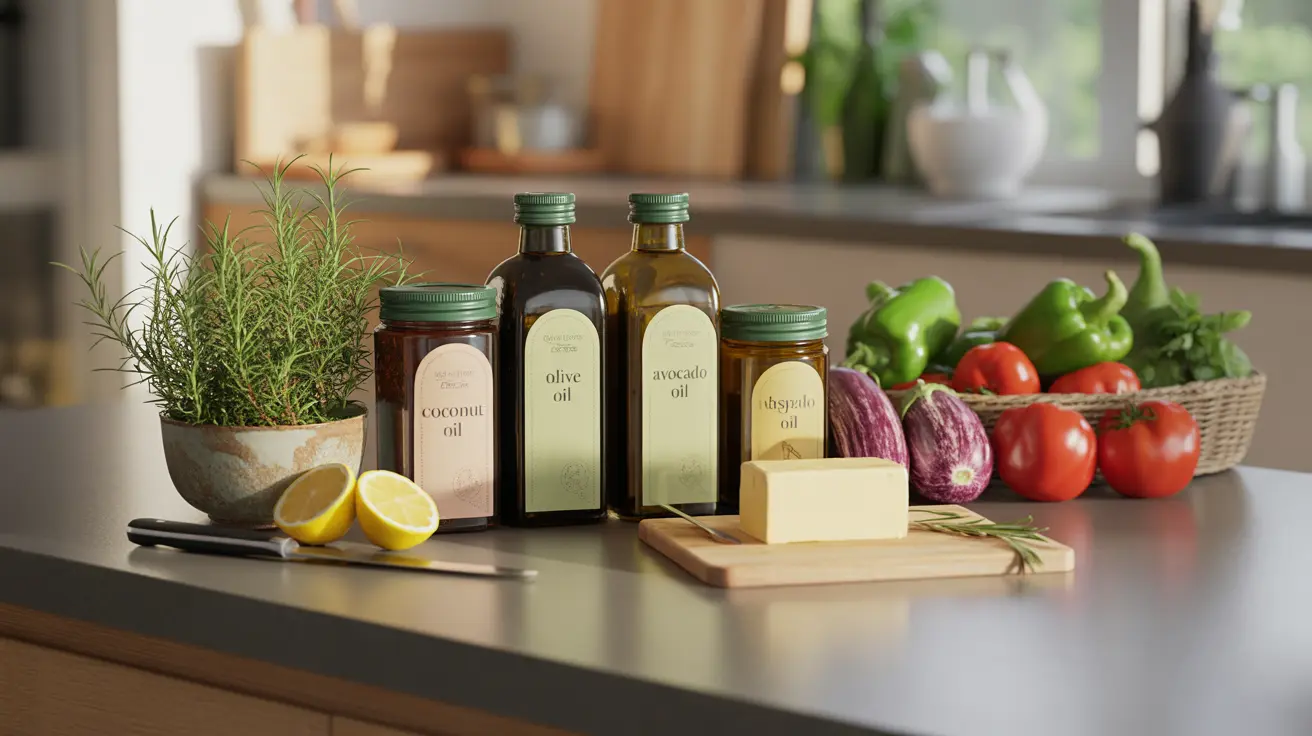Whether you're looking to make healthier choices in the kitchen or need a substitute for lard due to dietary preferences, there are numerous alternatives available that can deliver excellent results in both cooking and baking. Understanding these substitutes and how to use them effectively can help you maintain the quality of your dishes while potentially improving their nutritional profile.
In this comprehensive guide, we'll explore various lard substitutes, their specific uses, and how they affect your cooking outcomes. We'll also examine the nutritional implications of different alternatives to help you make informed decisions for your culinary needs.
Common Lard Substitutes and Their Uses
Butter and Margarine
Butter is perhaps the most straightforward substitute for lard in many recipes. It provides similar richness and creates tender, flaky textures in pastries. When substituting butter for lard, use these guidelines:
- Use a 1:1 ratio in most recipes
- Choose unsalted butter for better control over seasoning
- Consider that butter has a lower smoke point than lard
- Account for butter's higher water content in baked goods
Plant-Based Oils
Vegetable oils offer versatile alternatives to lard, each with unique properties:
- Coconut oil: Excellent for high-heat cooking and baking
- Olive oil: Ideal for savory dishes and Mediterranean cooking
- Avocado oil: Great for high-heat cooking with neutral flavor
- Vegetable shortening: Perfect for achieving flaky pastries
Best Substitutes for Different Cooking Methods
Baking Applications
Different baked goods require specific substitutes to achieve optimal results:
- Pie crusts: Vegetable shortening or butter
- Cookies: Coconut oil or butter
- Bread: Olive oil or vegetable oil
- Pastries: Vegetable shortening or butter-oil combination
Frying and Sautéing
When replacing lard for cooking methods involving high heat, consider these options:
- Deep frying: Vegetable oil or peanut oil
- Pan frying: Avocado oil or coconut oil
- Sautéing: Olive oil or butter
Nutritional Considerations
When choosing a lard substitute, consider these nutritional factors:
- Saturated fat content
- Presence of beneficial compounds
- Caloric density
- Vitamin and mineral content
- Processing methods
Making the Right Choice for Your Needs
Select your lard substitute based on:
- The specific recipe requirements
- Desired flavor profile
- Cooking temperature needs
- Dietary restrictions
- Health goals
Frequently Asked Questions
What are some healthy alternatives to lard for baking and cooking?
The healthiest alternatives to lard include olive oil, avocado oil, and coconut oil. These options provide beneficial fats and can be used in various cooking methods. For baking, unsalted butter or vegetable shortening can be excellent choices, while for cooking, oils with higher smoke points like avocado or grapeseed oil work well.
Can coconut oil be safely used as a substitute for lard in all recipes?
While coconut oil can be used in many recipes that call for lard, it's not universally interchangeable. It works exceptionally well in baked goods and for medium-high heat cooking, but its distinct flavor might affect some dishes. It's best suited for sweet baked goods and Asian cuisine where its subtle coconut flavor can be an asset.
How does using butter instead of lard affect the taste and texture of baked goods?
Butter typically creates a richer flavor and more tender texture in baked goods compared to lard. It contains more water and milk solids, which can lead to slightly less flaky pastries but often results in better flavor. The finished products might be slightly softer and have a lower melting point than those made with lard.
Is it safe to use olive oil as a substitute for lard in fried foods?
Olive oil can be safely used for moderate-heat frying, but it's not ideal for deep frying due to its lower smoke point compared to lard. Extra virgin olive oil is best used for sautéing or low-temperature cooking, while light olive oil can handle slightly higher temperatures.
What are the nutritional differences between using vegetable oils and animal fats like lard in cooking?
Vegetable oils generally contain more unsaturated fats and less saturated fat than lard. They often provide essential fatty acids and can be part of a heart-healthy diet. However, some highly processed vegetable oils may contain trans fats. Plant-based oils typically contain no cholesterol, while animal-based fats like lard do contain dietary cholesterol.




